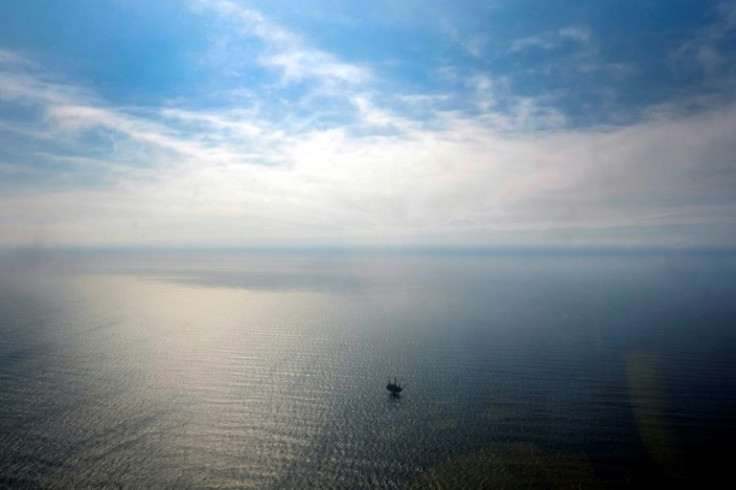UK Approves New North Sea Oil Production, Angering Green Groups
Britain on Wednesday authorised oil and gas production in its largest undeveloped field to bolster its energy security, one week after the government diluted its net zero targets, triggering further condemnation by environmentalists.

Britain on Wednesday authorised oil and gas production in its largest undeveloped field to bolster its energy security, one week after the government diluted its net zero targets, triggering further condemnation by environmentalists.
Norwegian oil and gas producer Equinor and Ithaca Energy, a subsidiary of Israeli group Delek, will together invest $3.8 billion in developing the Rosebank field in the North Sea off the coast of Scotland.
The North Sea Transition Authority, a UK oil and gas regulator, said it had "granted development and production consent for the Rosebank field, north-west of Shetland".
Equinor has an 80 percent interest in the project and Ithaca the remainder.
"Rosebank stands as the largest undeveloped field in the UK," said Gilad Myerson, executive chairman at Ithaca Energy.
"The Rosebank project will create thousands of jobs and contribute significantly to securing the UK's energy needs for many years to come," he added.
The UK government maintains it must beef up energy security via continued production of fossil fuels following the invasion of Ukraine by key producer Russia, even if it means pushing back its target on net zero carbon emissions.
"As we make the transition to renewables, we will still need oil and gas -- it makes sense to use our own supplies such as Rosebank," said Prime Minister Rishi Sunak on X, formerly known as Twitter.
"This is the right long-term decision for the UK's energy security."
Asked about the controversial field, Stephane Dujarric, spokesman for UN chief Antonio Guterres, said that what "the Secretary-General believes is that we need accelerated climate ambition, we don't need backtracking".
"He has repeatedly also said that the world will not be able to use all of the oil and gas that we've already discovered," he added.
Scotland's First Minister Humza Yousaf alleged that most of the oil and gas extracted from Rosebank would go overseas, and hit out at London's focus on fossil-fuel production.
"We recognise the significant contribution the oil and gas sector makes to Scotland. However, our future is not in unlimited oil and gas extraction. It is in accelerating our just transition to renewables," Yousaf said in a statement.
Wednesday's announcement comes a week after Sunak softened policies aimed at the UK achieving net zero carbon emissions by 2050.
Specifically, he said a ban on the sale of petrol and diesel cars would be pushed back from 2030 to 2035.
Sunak also announced an easing of energy efficiency targets for rental properties and backtracked on plans to make homeowners replace gas boilers with heat pumps.
The UK oil and gas regulator said Wednesday that the decision to authorise new North Sea output had taken "net zero considerations into account throughout the project's lifecycle".
But the announcement prompted fierce criticism from environmentalists.
"This is morally obscene," Green Party lawmaker Caroline Lucas posted on X.
"It won't improve energy security or lower bills -- but it will shatter our climate commitments."
Philip Evans, Greenpeace UK's climate campaigner, said "Sunak has proven once and for all that he puts the profits of oil companies above everyday people".
"We know that relying on fossil fuels is terrible for our energy security, the cost of living, and the climate," he added in a statement.
Geir Tungesvik, executive vice president for projects, drilling and procurement at Equinor, said "developing the Rosebank field will allow us to grow our position as a broad energy partner to the UK, while optimising our oil and gas portfolio, and increasing energy supply in Europe".
Extraction of the estimated 300 million barrels of oil at the field is expected to begin in 2026-27.
© Copyright AFP 2025. All rights reserved.





















